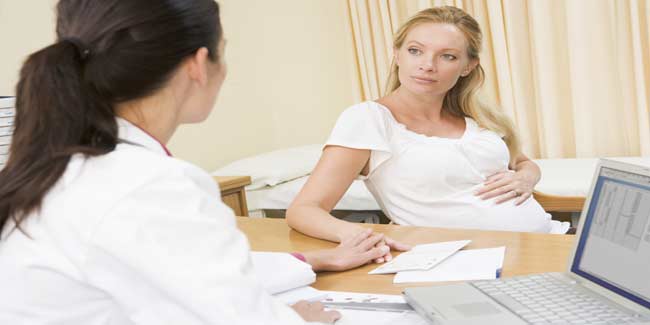
You are at risk of a high risk pregnancy when you or your baby tends to have an increased chance of a health problem. Though it sounds like a very scary ordeal, the term ‘high-risk’ is coined by doctors so as to give attention to your special need.
Table of Content:-
 The mother and the baby are at the risk of developing health complications that are not usual with other pregnancies. Before a woman conceives, it is of utmost importance for her to prioritise consumption of good nutrition and living a healthy lifestyle. Medical treatment during pregnancy and good prenatal care is important for a woman to prevent pregnancy complications. There may be different uncontrollable factors present in a woman before she conceives making her susceptible to high-risk pregnancy. Here are some of the causes of pregnancy.
The mother and the baby are at the risk of developing health complications that are not usual with other pregnancies. Before a woman conceives, it is of utmost importance for her to prioritise consumption of good nutrition and living a healthy lifestyle. Medical treatment during pregnancy and good prenatal care is important for a woman to prevent pregnancy complications. There may be different uncontrollable factors present in a woman before she conceives making her susceptible to high-risk pregnancy. Here are some of the causes of pregnancy.
- maternal age,
- being underweight or overweight,
- problems in previous pregnancies and
- pre-existing health conditions such as diabetes, HIV or high blood pressure.
Health issues may also develop at the time of pregnancy that make it high-risk. Such problems may also occur to women, who were healthy before conceiving.
High-Risk Pregnancy Conditions
There are some medical conditions that quantify the likelihood of a woman to have a high-risk pregnancy. Some of these medical conditions include:
Preeclampsia and Eclampsia
Preeclampsia refers to a syndrome that includes urinary protein, high blood pressure and changes in blood levels of liver enzymes at the time of pregnancy. This condition may affect the mother’s kidneys, brain and liver. This condition may be treated upon diagnosis, though it can cause complications if left untreated. Eclampsia is an even more severe form of preeclampsia that can lead to coma and seizure in the mother.
Gestational Diabetes
This type of diabetes occurs only in pregnant women. If a woman gets gestational diabetes, she should ensure to go through a treatment plan for the same to have a healthy pregnancy.
HIV/AIDS
This kills or amputates the cells of the body’s immune system, thereby destroying the body’s ability to fight certain types of cancers and infections. Women may transfer HIV to their baby upon delivery or breastfeeding, though there are ways in which the mother-to-infant transmission of HIV can be prevented.
Preterm Labour
This is the type of labour that begins before 37 weeks of pregnancy. Considering that the baby is not fully grown, it may not be able to survive outside of the womb. To make sure a woman does not go through this complication, health care providers take steps to stop labour before it occurs.
Existing Medical Conditions
When the expecting mother is suffering from high blood pressure, breathing trouble, kidney or heart problems, diabetes, or sexually transmitted diseases, there can be complications. Also any previous history of miscarriage, problems with a previous pregnancy could also contribute to such complications.
Multiple Births
This means that the mother is carrying more than one baby, could be twins, triplets, and quadruplets). Multiple pregnancies are more common as more and more women are opting for infertility treatments.
Foetal Problems
This can be seen on ultrasound at times, and approximately 2% to 3% of all the babies have some sort of minor or major structural problem in development.
Additionally there could be medical problems that occurs during pregnancy.
In order to have a safe and sound pregnancy, you should pay heed to your doctor's advice and have a healthy diet and take folic acid tablets daily.
Read more articles on Problems during Pregnancy.
How we keep this article up to date:
We work with experts and keep a close eye on the latest in health and wellness. Whenever there is a new research or helpful information, we update our articles with accurate and useful advice.
Current Version